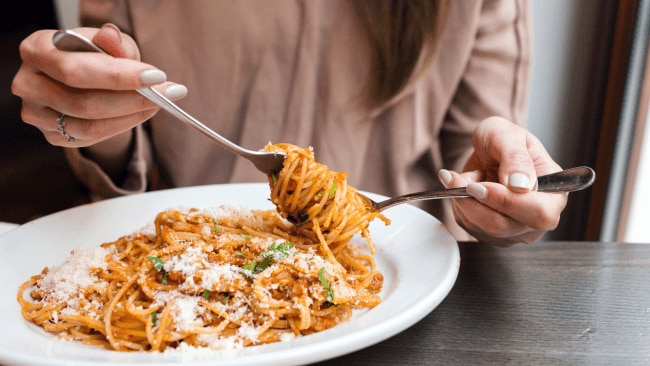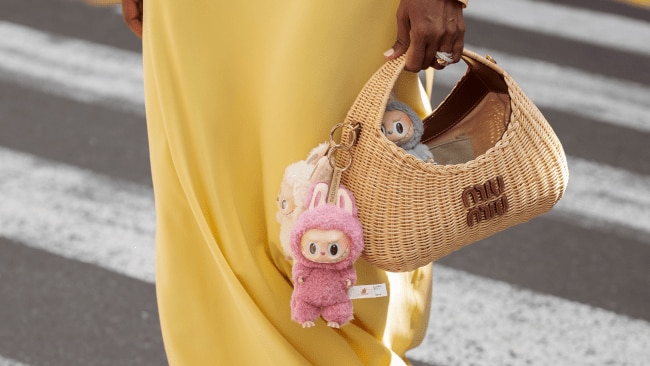Nike run coach Lydia O'Donnell on the secret to female-focused training
She's helping others build confidence
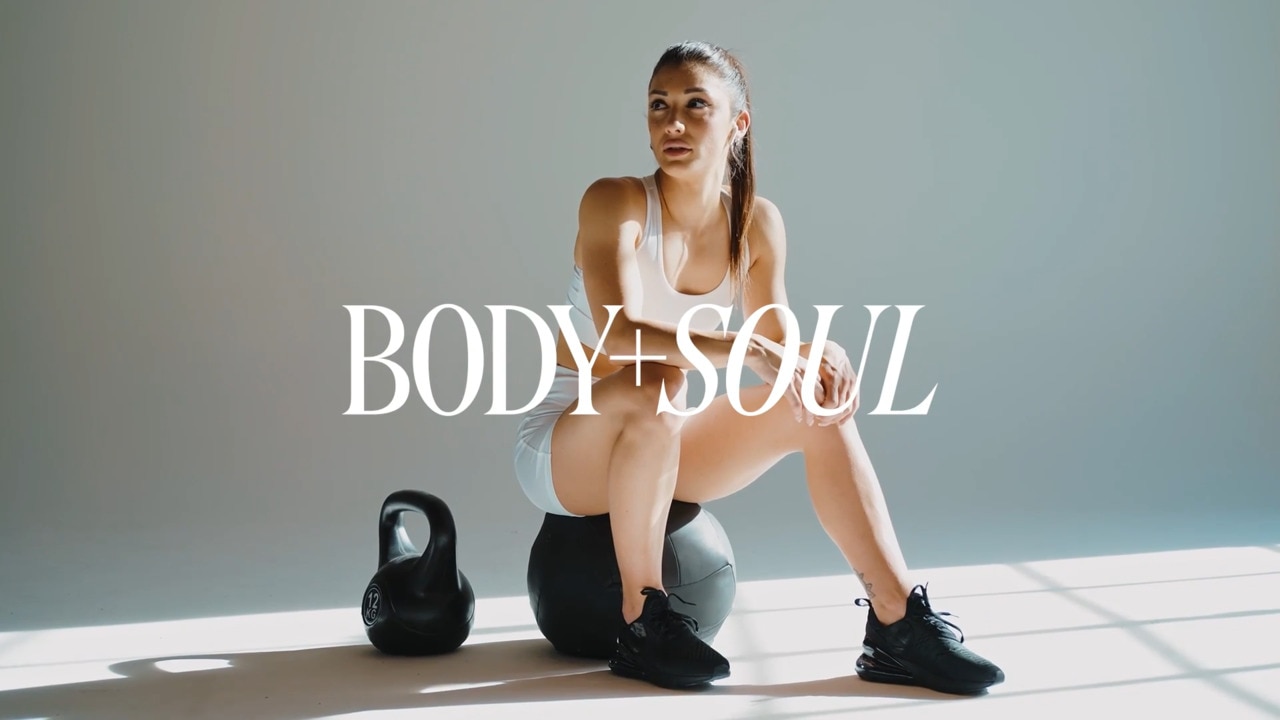
Lifestyle
Don't miss out on the headlines from Lifestyle. Followed categories will be added to My News.
The elite marathon runner and Nike coach on learning to listen to her body and empowering women through sport.
You won your first national title aged 19. Since then you’ve become an elite marathon athlete, started your own running community, Femmi, launched an app and a podcast, plus a weekly run in 15 communities across Australia and New Zealand. Has there been a highlight?
My whole world is about building confidence in women, and running is just my voice and my tool to be able to do that – so last month’s Nike After Dark Tour in Sydney was definitely a career highlight. There’s a really unique energy that comes when you put women in a supportive space together – we see that at Femmi Fridays every week – but seeing that on that huge scale with 7,000 women crossing the finish line after a 21k run was like nothing else.
90% of women finished with their hands in the air and that sight is so rewarding to me as a coach, because not only have these women got through 21k on Saturday night, they've also done weeks of training. For me, it’s not about just one moment or one race. It's about sustainability: seeing women enjoying running for what it can do for their mental and physical health. Doing hard things is incredibly important for building confidence in ourselves.
You lost your period at the age of 25, and nearly lost your running career as a result. Tell us what happened.
There was a huge lack of understanding around female physiology for most of my running career. I had coaches grabbing my stomach and telling me that if I lost weight I would be quicker. It was pretty horrific and I lost a lot of confidence in myself and did whatever I thought I had to do to get there: disordered eating behaviors, over-training, not listening to my body at all. I fell into what we now know to be a state of relative energy deficiency syndrome and when I was 25 I lost my period.
I saw it as normal and even a badge of honor at first, because I’d always heard of athletes losing their periods. But three months later, my health completely crumbled. I was so fatigued I ended up having to stop running completely. I remember one pivotal morning when I woke up, looked in the mirror and looked so much older than 25: my skin was breaking out, my hair was falling out, I had this eye twitch, which lasted for six months. I’d just been ignoring all these signs from my body, which was trying to tell me something was wrong.
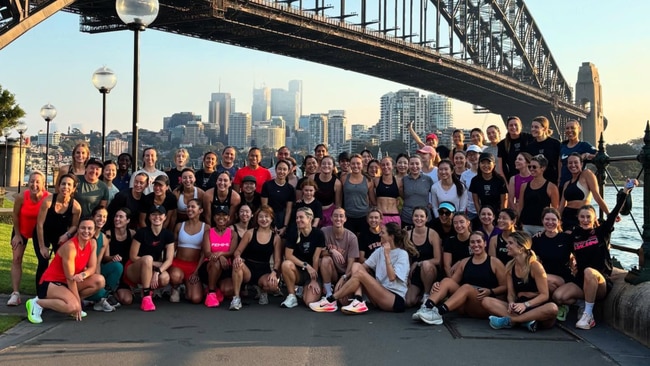
What was the turning point that got you back on track – and how did that shape your career?
A book called Roar by the physiologist Dr Stacy Sims – for the first time I learned about my menstrual cycle and the way it was impacting my performance. That was a real eye-opener for me.
I started adapting my training to my cycle, and started to fuel myself properly. Within about 18 months, I ended up breaking all of my PBs from the 5k to the marathon, and felt so much better in my body. I had a healthy cycle and stopped caring about the way that I looked and really focused on my performance.
Together with my best friend and fellow runner Esther Keown, I felt this responsibility to start changing the narrative; to design women’s training around their cycle in a healthy and sustainable way. That’s where our running community Femmi was born. Femmi now has this incredible team of medical experts and we’re doing a lot of work to educate organisations around the fact that girls are dropping out of sport at two times the rate of boys because of the lack of support for women’s physiology.
Fitness is often heavily intertwined with our appearance, particularly on social media. You’ve always maintained that running is a meditational form of movement and not about how it makes you look. How do you balance that message with the pressures of social media?
I started sharing my running journey on Instagram in about 2012 and I’ve spent that time constantly thinking about the way I show up online and how it’s going to impact other women. There have definitely been times where I’ve struggled to share my achievements because I don't want women to compare themselves. But for me, it’s all about telling a story that’s going to motivate other people versus showing how quickly I can run or how I look. I love sharing a good outfit on socials, but I’m always thinking about the impact.
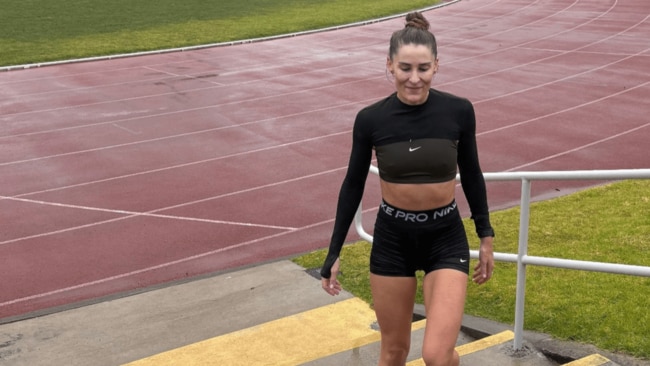
Periods are generally seen as a nuisance when it comes to sport, but Femmi is all about challenging that. How can women harness their menstrual cycle in a positive way, when training?
Growing up, there were never any powerful anecdotes tied to having a menstrual cycle, yet it’s such a huge part of our physiology. When we speak negatively about it, we’re ultimately speaking negatively about our bodies. I wanted to change that so women can feel empowered by what's going on internally. Of course there are some phases of our cycles when we might feel more fatigued or tired or anxious, but there’s a spike in oestrogen during the ovulation phase, for example, which helps to build muscle and helps to recover. We tend to see women being able to hit higher intensities and recover faster during that phase. Everyone has a different experience with their hormones, so personalizing our training to our own experience can be really beneficial for progression and performance. That’s something we should be celebrating.
What does 2025 have in store for you next?
My big goal for this year is to qualify for World Champs for the half marathon, and I’m pumped to say I’ll be running the Nike After Dark Tours in LA and Mexico City next month, too. I haven’t been in one place for longer than a couple of weeks for about four years now and I love being constantly on the road. When I’m somewhere for longer than a week, I'm like: ‘OK, where to next?’.
More Coverage
Originally published as Nike run coach Lydia O'Donnell on the secret to female-focused training



